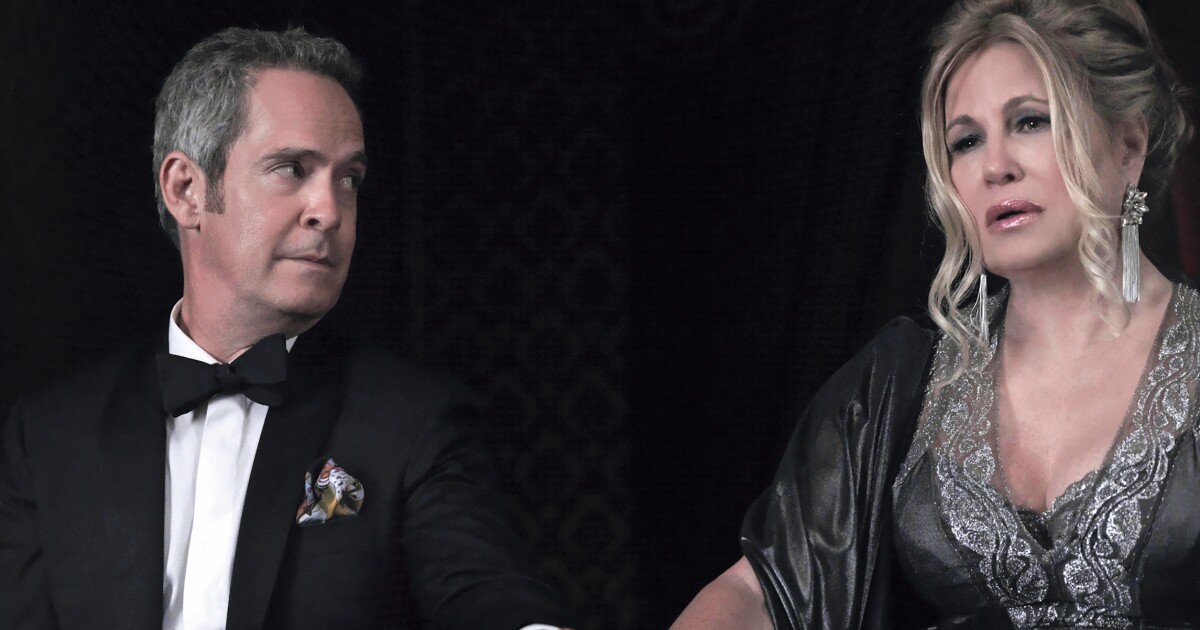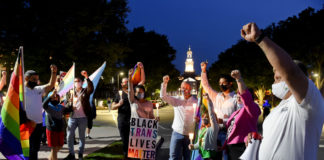
2022 has not been a good year for gay cinema. Billy Eichner’s romantic comedy Bros flopped at the box office, as did Strange World, Disney’s first film with an openly gay main character. Critics loved Hulu’s Fire Island, which follows a gaggle of Asian gays on vacation, but I haven’t met a single gay man in real life that did. But perhaps Fire Island’s critics were wise to shower praise. After Eichner’s gay rom-com Bros tanked, Eichner cried homophobia and blamed straight people for not seeing the movie.
It’s hard to see why straight people would want to see it. After all, the trailer includes a groanworthy “joke” with the punchline, “Remember straight people?” and something about “heterosexual terrorists.” The heterosexual specter Eichner evoked in the aftermath of the film’s commercial failure went beyond what was highlighted in the trailer. “Straight people love seeing us miserable,” Eicher’s character tells his date as the two walk out of the theater after watching some sad gay drama set in the Old West.
From Matt Damon’s conniving Tom Ripley in The Talented Mr. Ripley to Will Smith’s charming but fraudulent Paul in Six Degrees of Separation, prestigious movies have often portrayed gay characters as deceitful at best, evil at worst. Any number of woke film studies majors (or journalists who graduated as woke film studies majors) have discerned the trend and gotten a thesis out of it. And that’s not to mention the huge fight that ensued when 1991’s Silence of the Lambs, the last movie to win all five big Oscars for Best Actor, Actress, Screenplay, Director, and Picture, depicted serial killer Buffalo Bill as a poodle-toting traipser so uncomfortable in his own skin that he took that of young women. Groups such as Queer Nation clashed with police outside the 1992 Oscars ceremony, protesting Hollywood’s stubborn insistence on portraying gays as demented, perverted, dangerous, or evil.
The world of gays onscreen that ensued after Hollywood caved to their demands is awfully flat, from an entertainment standpoint. It’s right-thinking, responsible, and therefore unfun. I’d rather be represented as sinister but at least get some edgy laughs. Evil and perversion, it turns out, make great TV, whereas responsible representation makes for a lecture that most people wish to turn off. The insistence that gays be happy has become as rigid as the former insistence that we be miserable. Gay tragedy can be beautiful: Paris is Burning, My Own Private Idaho, and Brokeback Mountain. But what the talk of representation misses is that a film is not a congress; the actual presence of gay characters or subjects isn’t always the point of gay film. Things that inspire or entertain gays (and straights) is. As with all art, honesty is.
What gay people like isn’t always what’s good for us, or at least that’s what the professionals seem to think. So perhaps we should eat our vegetables, like Eternals, which GLAAD (an LGBT media watchdog group that was among the objectors to Buffalo Bill) called the “most outstanding film” of 2021 for the inclusion of a frumpy middle-aged gay couple. After Eternals was “review-bombed” before its release, reporters who hadn’t seen the film either applauded it preemptively, with one writer in the Advocate saying, “the outrage is a sign that Marvel is heading in the right direction by presenting a much more diverse world onscreen, regardless of how a close-minded vocal minority feels about it.” Every new movie or TV show seems to have a “queer character” in it, mushed in, usually somewhere unimportant enough to be cut for the foreign markets. Hollywood can grind us up into any mass market slop and, with luck, elicit a minor homophobic response somewhere that can dominate the coverage during the media blitz in lieu of any actual critical coverage that might highlight a work’s flaws as a piece of art and entertainment.
Whom does the Advocate speak for, though, when it praises billion-dollar media conglomerates for going in the “right direction” by making CGI-fests about gods shooting bolts of magic at one another — but, you know, queerly? Certainly not gay people, who are suffering from acute media overexposure. It feels as though we are being used as a shield, a rhetorical insurance policy against commercial failure. Cultural conservatives online truly seem to think that actual living, breathing gay people want to see ourselves in children’s cartoons or action movies. Sure, some gay people do, out of rigid liberal ideology or Stage 4 inoperable bad taste. But these illnesses exist only because they’re shared by a cohort of straight people. Drag queen story hour, for example, only exists because of a demand from liberal wine moms. Gay adults aren’t interested in this sort of thing. We don’t want to see drag queens sober, in the daytime, sitting under the unforgiving fluorescent lighting of a public library reading The Owl and the Pussycat to a crowd of bored Montessori brats and their overly enthusiastic mothers. It’s an aesthetic horror, and one that exists because of the defanging of gay media, specifically RuPaul’s Drag Race. It seems almost unthinkable now, but in 2014, RuPaul actually fought against this, for example calling those who criticized his use of the word “tranny” “Orwellian oppressors.” The use of that word, or the phrase “you’ve got she-mail,” used at the beginning of every episode in earlier seasons, would be unthinkable today. When the show aired in 2009 on LOGO, produced with a small budget for an entirely gay audience, no one thought anything of it.
Fire Island may be an “Asian-American queer rom-com” that “spotlights the power of queer Asian friendship — particularly in places that aren’t always inclusive of LGBTQ+ people of color,” as NBC put it. Yeah, cool, great. Still, it will never occupy a larger space in the gay zeitgeist than Grey Gardens or The Real Housewives. Often, it is the cracks in straight life (especially that of wealthy female straight lives) that draw gays’ gaze on film. Neurotic, millionaire layabout Tanya McQuoid (portrayed by the perpetually camp Jennifer Coolidge) is the only character bisexual showrunner Mike White brought back to the second season of The White Lotus. Gays love The White Lotus. The difference from a Fire Island or a Bros is that the mind behind it would never be caught dead saying “problematic” or trying to “represent” gays or any other group in some sanitized way to the viewer. Quite the contrary. Problematic is fun. In both seasons, White gleefully portrays gay men as duplicitous perverts led to ruin by an insatiable lust for straight guys. We don’t want gay autobiography, or even gay tears all the time. We want John Waters, Frankenfurter from The Rocky Horror Picture Show — you know, camp, gay evil, that impish little enby from Biden’s Department of Energy who allegedly keeps stealing women’s bags at the airport. Diversity hires with kleptomania. That’s gay entertainment.
Perhaps an economic crisis will cinch belts in Hollywood, and gay media productions for representation’s sake will be cut. This can’t come fast enough. Until then, don’t feel bad about not watching. The 99% of gay people who don’t work for donor-funded advocacy foundations certainly don’t care.
River Page is a writer and essayist. Find his Substack, Chain Smoking to Babylon.








